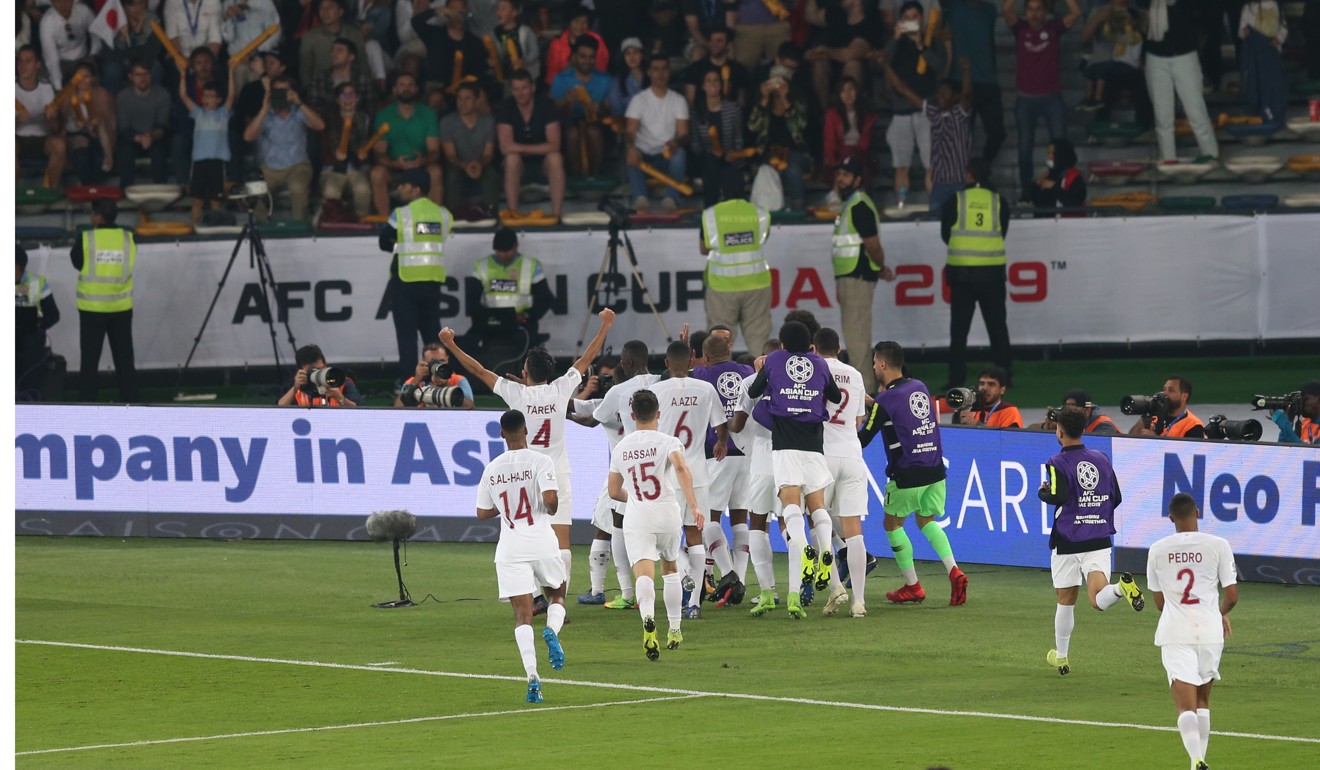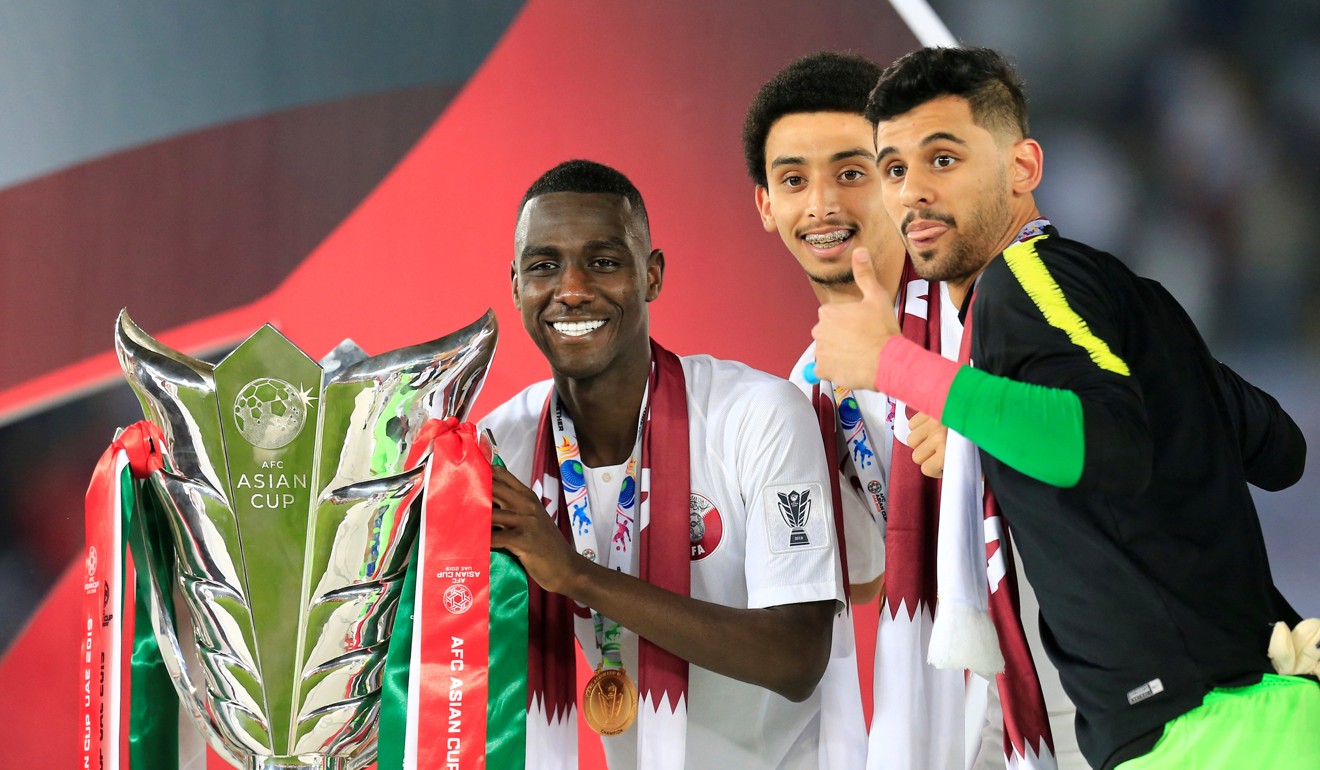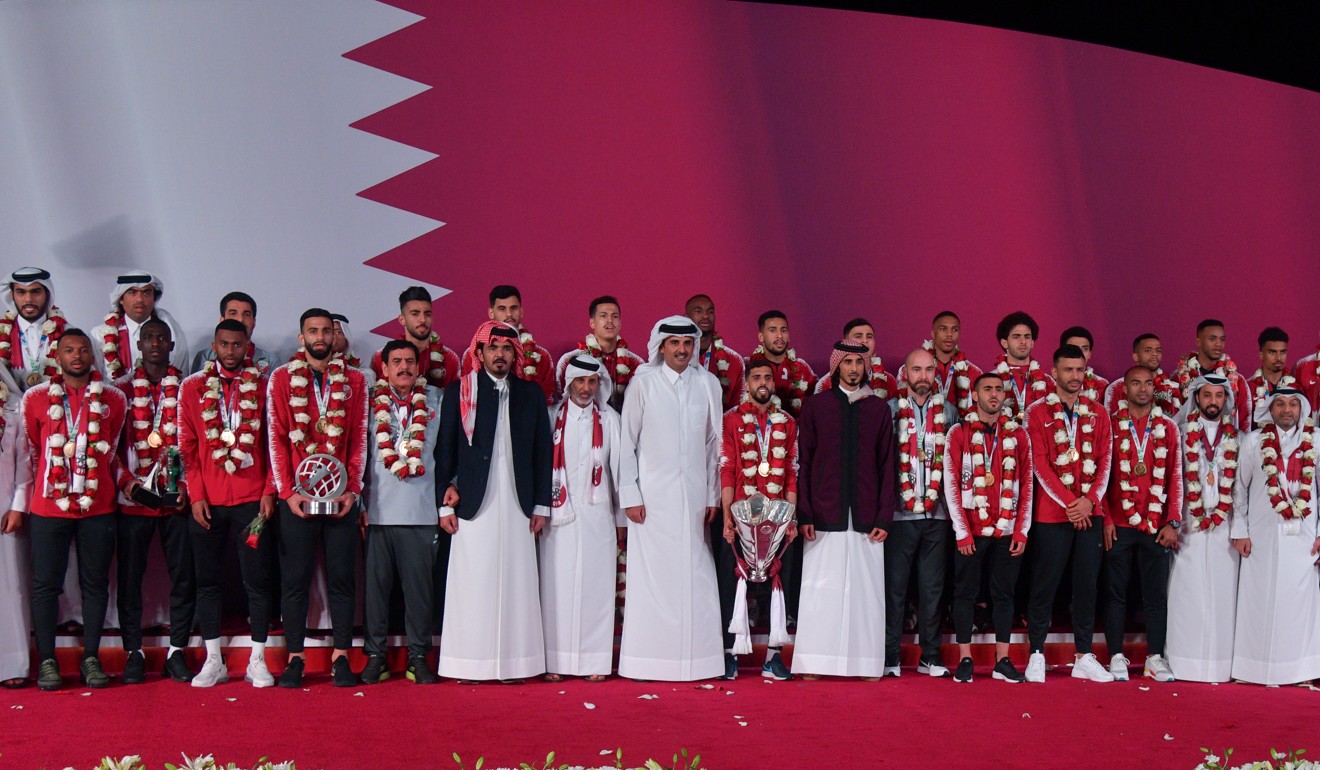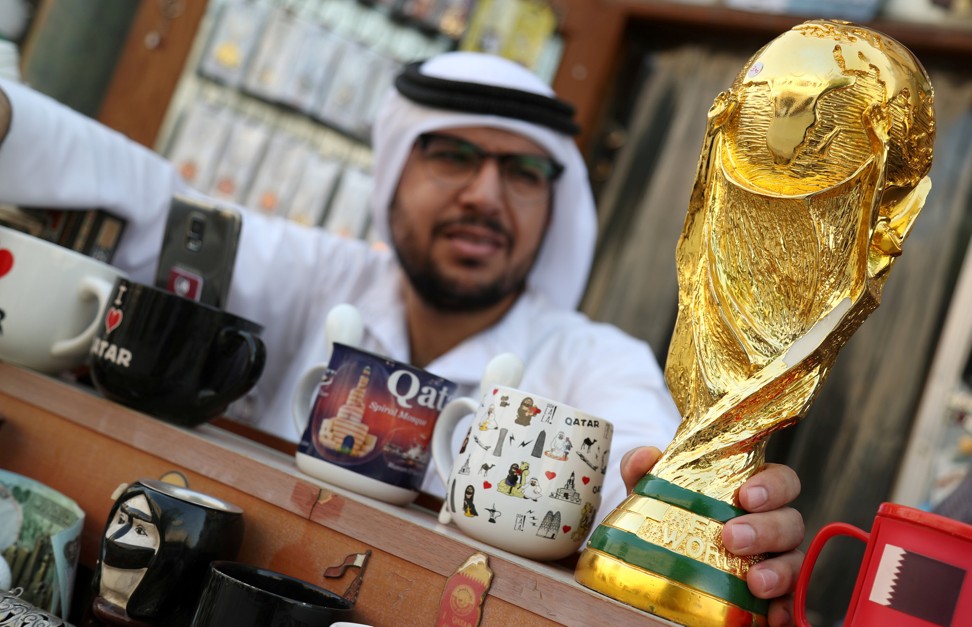
Qatar scores in more than its sports goal: Asian Cup win is a victory for the gulf state’s soft power
- Asian Cup win means Qatar is being talked about for things other than its human rights record or regional feuds
A dusty suburb on the outskirts of a city in the Gulf region would seem to be an unlikely epicentre for some of the world’s most compelling current sporting, geopolitical and industrial issues.
Yet Al Sadd in Doha is just that: one of the Qatari capital’s oldest districts and a pleasant place to live according to local residents, it has rapidly become a vital node in a network of power and influence that extends way beyond the streets of Qatar’s biggest city.
Driving past Al Sadd en route to the desert, the most obvious landmark is the Ali Bin Hamad Al Attiya Arena. This was constructed to host matches during the Handball World Championship, which Qatar hosted in 2015.

However, the tournament’s staging, the national team’s success, and the use of Al Sadd as the location for a venue were all hugely symbolic. Qatar’s national vision and its supporting pillars emphasise the importance of sports and hosting sports events: for boosting economic activity, building political influence, and addressing socio-cultural challenges such as strengthening national identity.
Just around the corner from the handball stadium, there is even more potent evidence of how Qatar sees itself, what it wants to become, and how sport has become such a significant constituent part in a global network of power and influence that government in Doha is intent on building.
The Jassim Bin Hamad Stadium is a small venue, only able to accommodate crowds of less than 13,000 people. Generally, fewer than 2,000 attend games there, though the stadium is home to two of Qatari football’s most iconic clubs.
The Qatar Stars League (QSL) team Al Rayyan currently plays its games there, although the district is actually some way outside Doha. It was once a stand-alone town, though it is now being rapidly consumed by expansion of the capital city (and will be a World Cup host venue in 2022). Even so, Al Rayyan is held in some affection by many Qataris as it reminds them of a previous age and of different ways during a time before the money came.

But it is the other team playing at Jassim Bin Hamad that is more significant – Al Sadd itself. Hardcore Qatari football fans will often sneer at the very mention of the club, just as fans elsewhere do when discussing affluent, big name capital city clubs. In this respect, Al Sadd is no different.
Al Sadd is different, however. The QSL’s reputedly best club has an important owner: Mohammed bin Hamad bin Khalifa Al Thani, otherwise known as the Qatari Emir’s brother. For observers looking ahead to the country’s hosting of the World Cup, the Al Thani family name is an important one to look out for as it signifies power, influence, and control.
The symbolism of Al Sadd is therefore immense – it is effectively a government-owned club participating in a sport that is central to government policy and to the country’s strategy. As such, Al Sadd is intended to be the embodiment of Qatari national identity and of Qatar’s sporting prowess.
Al Sadd is sometimes referred to as an Asian super club, which its recent record gives some credibility to. Over the last 12 months alone, the team has reached the Asian Champions League semi-finals, finished second in the Qatar Stars League, and won the Sheikh Jassim Cup.
Such achievements have been built upon a mix of imported and domestic talent. Former FC Barcelona star Xavi Hernandez is its current star, reflecting Al Sadd’s desire to be associated with the sport’s biggest names. Equally, it also reflects once close relations with the Spanish club that date back to Qatar Airways’ shirt sponsorship deal with Barcelona.

Playing alongside Xavi is Tarek Salman, who is currently on loan from Spain’s Jupiter Leones. It is no coincidence that this club is owned by the Aspire Academy. Only a ten-minute drive from Al Sadd, Aspire is a training facility set up in 2004 to further Qatar’s sporting ambitions by training future generations of elite athletes.
Aspire’s influence extends way beyond Spain, as it also owns KAS Eupen in Belgium for the same reason. This strategy is beginning to yield impressive results – Qatar’s recent tournament win at the 2019 Asian Cup in the United Arab Emirates being the highest profile achievement to date.
A number of players in that cup-winning squad had connections either to Aspire, Leones or Eupen. Nine of the Qatari players picked for the Asian Cup currently play for Al Sadd.
The manner of Qatar’s Asian Cup triumph was striking: fast-moving, expansive play that drew praise from those who observed the team win saw them become top scorers and concede only one goal.
Instead of talking about immigrant labour, bribery allegations, or regional feuds, the football world was instead glowing in its praise of the style of football being played. For once, it seemed as though Qatar was loved. This is exactly what the Qatari government wants; winning games and playing well has soft power effects.
As such, both the national team and Al Sadd are important vehicles through which Qatar can play the game of appeal and attraction. Indeed, it is no coincidence that Al Sadd’s main shirt sponsor is Qatar Airways, another state-owned entity routinely engaged in seeking to curry favour and generate goodwill amongst key target audiences both locally and globally.

The Al Sadd/Qatar Airways deal is no accident – Qatari decision-makers are strategic and constantly seeking to leverage opportunities for positioning and presenting the best of Brand Qatar. Sometimes it works, at other times it doesn’t. Between 2009 and 2017, another Qatar state investment, Burrda, was Al Sadd’s official kit supplier.
Burrda was supposed to grow and become a Gulf rival to the likes of Nike and Adidas. Things haven’t worked out that way and Al Sadd now plays in Puma kit from Germany. Even so, in spite of such hitches in the Qatari national plan, the dusty suburb remains an important representation of a Qatar which the country’s government wants the world to see.
This piece is published in partnership with Policy Forum at the ANU Crawford School of Public Policy and the China Soccer Observatory at the University of Nottingham.

